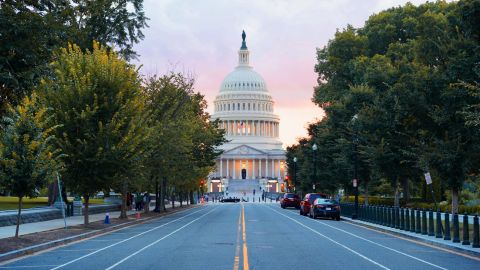Science-related legislation to watch
The American Society for Biochemistry and Molecular Biology’s public affairs team tracks federal legislation that affects the scientific community. Here we report on and respond to two recent bills — one that would provide emergency monies for agencies that fund scientific research and one that would put measures in place to thwart foreign interference in research.
Research Investment to Spark the Economy (RISE) Act
As COVID-19 swept across the nation, academic laboratories and university research centers closed their doors and slowed much of their federally funded research. Researchers are understandably concerned that a widespread and lengthy shutdown will affect the pace of scientific discovery. Being away from labs for weeks or months would certainly mean having to restart or altogether abandon many experiments, which translates to wasted time and resources.
Some scientists have urged institutions to develop long-term plans to sustain research unrelated to COVID-19. Such plans would address both how to restart research projects and how to avoid wasting years of scientific progress.
In response to mounting calls from the scientific community for the federal government to guarantee investments in research unrelated to COVID-10, U.S. House Reps, Diana DeGette, D-Colo., Fred Upton, R-Mich., Eddie Bernice Johnson, D-Texas., Frank Lucas, R-Okla., Anna Eshoo, D-Calif., and Anthony Gonzalez, R-Ohio., introduced the Research Investment to Spark the Economy (RISE) Act on June 24. The legislation would authorize $26 billion in emergency relief for federal science agencies that support scientists whose work has been affected by the pandemic.
This bill would allow federal science agencies to provide supplemental funding to extend the duration of some grants. This would enable principal investigators to complete research interrupted by COVID-19, extend the training of graduate students or employment of postdoctoral researchers on federal grants, and reconfigure labs and equipment to resume on-site research activities safely.
The RISE Act is an important piece of legislation to ensure that the American research enterprise can restart and continue vital federally funded research. This legislation is necessary to preserve our scientific infrastructure and protect the innovation pipeline.
Read the ASBMB’s full position statement on the RISE Act here.

Safeguarding American Innovation Act
The Senate Committee on Homeland Security and Government Affairs released a report on foreign influence on American research in November. In July, Senate subcommittee Chairman Rob Portman, R-Ohio., and ranking member Top Carper, D-Del., introduced S. 3997, the Safeguarding American Innovation Act, to thwart bad actors while maintaining transparency and collaboration in the scientific research enterprise.
The legislation would establish a Federal Research Security Council to implement a uniform, machine-readable federal grant-application process, implement a uniform and regular reporting process, and issue guidance to executive agencies to develop compliance and oversight programs.
Some higher education organizations are concerned with provisions in the legislation, such as one that would reduce the reporting foreign gifts threshold from $250,000 to $50,000. Both Portman and Carper have invited organizations to talk to their offices about their concerns. While the committee approved the bill July 22, it’s unclear when it will come up for a vote by the full Senate given how few days the Senate will be in session between now and the November presidential election.
The ASBMB encourages the committee to continue to work on a bipartisan basis and with stakeholders in the scientific community to fully address foreign influence on American research while ensuring the continuation of productive scientific international collaboration.
Read the ASBMB’s full statement on the Safeguarding American Innovation Act here.
Enjoy reading ASBMB Today?
Become a member to receive the print edition four times a year and the digital edition monthly.
Learn moreGet the latest from ASBMB Today
Enter your email address, and we’ll send you a weekly email with recent articles, interviews and more.
Latest in Policy
Policy highlights or most popular articles

Councilors advocate for science on Capitol Hill
ASBMB Councilors meet with their elected officials to advocate for basic scientific research funding and training the next generation of scientists.

Hope for a cure hangs on research
Amid drastic proposed cuts to biomedical research, rare disease families like Hailey Adkisson’s fight for survival and hope. Without funding, science can’t “catch up” to help the patients who need it most.

Supporting science through advocacy and community building
ASBMB calls on scientists to take action as funding cuts and policy shifts threaten the U.S. research enterprise, emphasizing the power of community advocacy and persistence in protecting the future of science.

Seven steps to advocating in your home state
Find out how to schedule, prepare for and conduct a productive district office meeting to communicate the importance of fundamental scientific research funding to your representatives.

ASBMB members call for funding and agency support amidst uncertainty
In 60 meetings on Capitol Hill, scientists urge legislators to reaffirm support for scientific innovation

Embrace your neurodivergence and flourish in college
This guide offers practical advice on setting yourself up for success — learn how to leverage campus resources, work with professors and embrace your strengths.

